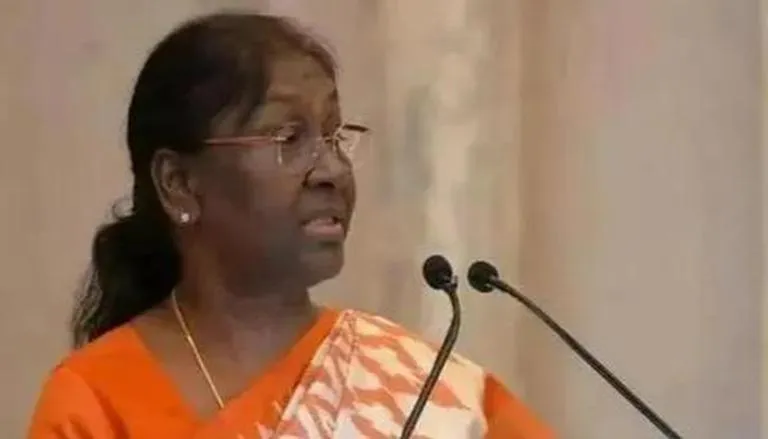Visiting Kerala for the first time as President of India, Droupadi Murmu on Friday hailed the progress made by the southern state in empowerment of women and poor, saying it has reflected in the state’s better performance on several Human Development indices.
She said the sex-ratio in Kerala is by far the best in the country and also has the highest literacy rate, including women’s literacy.
Murmu said on the parameters of promoting maternal health and preventing infant mortality, Kerala’s performance is the best in the country.
“I believe that when women are given important roles in any society, it results in overall betterment of that society. In Kerala, women have been more educated and empowered, which reflects in Kerala’s better performance on several Human Development indices,” the President said.
She was speaking after inaugurating “Kudumbashree@25 through Rachna: Contemporary stories of women in Kerala; and ‘Unnathi’ for the comprehensive development of the Scheduled Tribe” here at function attended by dignitaries including Governor Arif Mohammed Khan and Chief Minister Pinarayi Vijayan.
“In keeping with the lofty traditions of women empowerment in Kerala, ‘Kudumbashree’ has become one of the largest women’s self-help networks in the world. I thank the Government of Kerala for organising the inauguration of the silver jubilee celebration of Kudumbashree in this civic reception,” she said.
The President said it is also an occasion to gratefully remember the vision and sensitivity of Bharat-Ratna Atal Bihari Vajpayee who launched Kudumbashree in 1998, when he was the Prime Minister.
Murmu said she was glad to be associated with ‘Unnathi’, the programme launched here for the development of residents of Kerala belonging to the Scheduled Castes and Scheduled Tribes.
“Unnathi’ or ‘Kerala Empowerment Society’ seeks to create opportunities for employment and self-employment, among the youth belonging to SC and ST communities. I wish the initiative all success in its efforts for inclusive growth,” she said. The President said she was happy to note that welfare of SCs and STs is given high priority in the state with helpful initiatives in the areas of housing, health, education, livelihoods, and infrastructure development.
The President also said the cosmopolitan outlook of the people of Kerala is worth emulating. “In Kerala, people of all faiths and religions have been living together in harmony, bound by the language and culture of this beautiful state,” she said. Murmu said every segment of the social fabric of Kerala has shining ideals of women empowerment in different periods of history.
“Unniyarcha, had set a stirring example of self-help through martial arts. She is immortalised in Kerala’s folklore. Nangeli sacrificed her life protesting against unfair practices imposed upon Dalit women, including their personal clothing. She continues to inspire generations of those who fight for social dignity and justice”, she said.
Noting that in the Constituent Assembly, there were 15 women members, the President said out of them, as many as three were from Kerala alone.
“Ammu Swaminathan, Dakshayani Velayudhan and Annie Mascarene were much ahead of their times. Dakshayani Velayudhan was the only Dalit woman to be elected to the Constituent Assembly”, Murmu said.
The President said the first lady to become a High Court judge in India was Justice Anna Chandy.
“She became a judge in the High Court of Kerala in 1956, much before Dame Elizabeth Lane became the first woman judge of the High Court in Britain in 1965. Justice M Fathima Beevi created legal history by becoming the first lady judge in the Supreme Court of India,” she said.
Speaking about Karthyayani Amma who has become a national icon by attaining the first rank under the Akshar-Laksham Scheme at the age of 96 in 2018, she said, “Amma inspires everyone with her message that it is never too late to learn.” Referring to the presentation of the National Film Award for Best Female Playback Singer to Nanchiyamma, a tribal woman, the President said she has inspired every single woman in the country, especially those from the under-privileged segments of our society.
